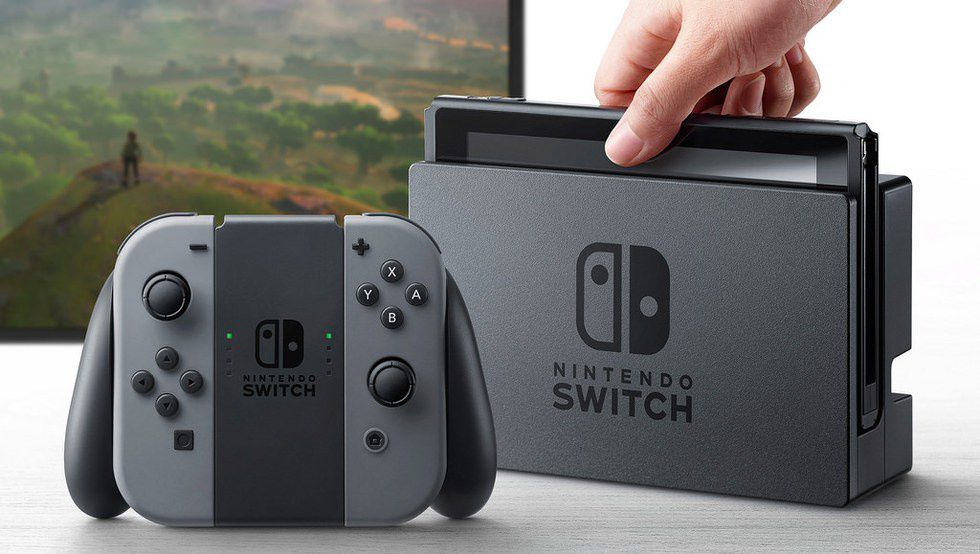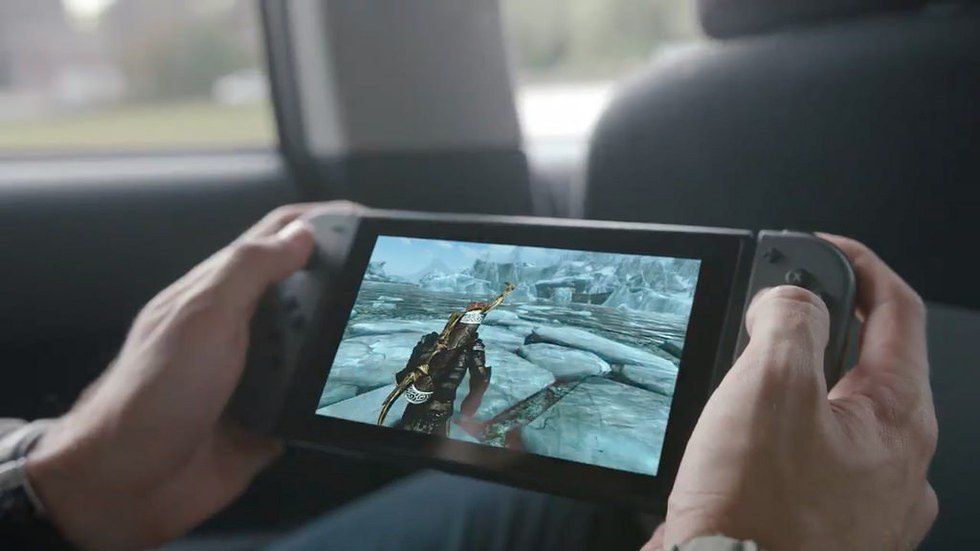First of all, for anyone interested, here is a link to the presentation that this article is about. If you're interested in watching any of it yourself, click here.
Now...
On Thursday, January 12th, 2017, Nintendo streamed a live presentation on their YouTube channel to promote their new console, the Nintendo Switch. Before this presentation, we as consumers knew that the point of the console was to be able to switch (hence the name) from playing games on the TV to playing them on a portable tablet in an instant. Now, after the presentation, we have what feels like a deluge of new information regarding the system.
And it's both promising and concerning.
First, let me voice some concerns, both that I've gathered and that I've heard from other critics across the internet. To reiterate, it would seem that the primary appeal of the Switch is its portability. The console allows players to take large-scale adventure games with them on the go--games like The Elder Scrolls, The Legend of Zelda, etc.--like they've never been able to before. And this feature was completely lacking in emphasis during the presentation. I've heard many people since the presentation complaining about the games announced for the system. One example is that the game Skyrim is being brought to the Switch. Skyrim has been available on Playstation 3, Xbox 360, and PC for years now, and I have heard many complain about this. The difference, however, is that now any fan of the game can play Skyrim anywhere, something not possible with PC and certainly not with Xbox or Playstation. But this simple fact went essentially unmentioned during Nintendo's presentation, and I hold this to be a very significant marketing mistake. Their time was spent more so on features such as the controllers' motion sensors, something that consumers quite frankly care very little about.
The other most pressing issue with the future after this presentation is a the most glaring problem that could've possibly gone wrong--the games announced. Currently, there are five games scheduled to release on the day the Switch launches. These are The Legend of Zelda: Breath of the Wild, 1-2-Switch, Just Dance 2017, Skylanders Imaginators, and Super Bomberman R. In other words, none of these games, outside of The Legend of Zelda, have anything close to mass appeal (I omit 1-2-Switch from the category of mass appeal because it is not packaged with the console, something that has caused games like Wii Sports to succeed in the past). To make matters worse, most of the other most anticipated titles announced on the 12th--Super Mario Odyssey, Splatoon 2, NBA 2K18, etc.--are not scheduled to release for several months. This could very likey create a huge problem for Nintendo to move a significant amount of product in the console's first year.
However, the news is not all bad!
While the presentation didn't show audiences a large quantity of games, the quality seems to be on the up-and-up. It would seem that several different demographics are targeted just in the few games already announced. Casual consumers have pick-up-and-play party games like 1-2-Switch and Just Dance; younger audiences are getting new installments in series like Mario Kart, Bomberman, and Splatoon; those considered to be more hardcore gamers might see the investment worthwhile for games like Skyrim and Xenoblade 2; perhaps most importantly, Nintendo seems to be hitting a target audience of young adults hard with nostalgia with promising entries in the Legend of Zelda and Super Mario series--both boasting games that appear to bring back much of what fans have loved in the past as well as new features long desired. In my last article, I touched on how critical I think this childhood nostalgia-driven young adult audience is to the Switch's success, and they seem to realize the same thing.
Besides the games, there are many smaller upsides to the presentation. The portable console can charge using a generic micro USB cable, not a proprietary one; games will no longer be region locked, meaning Switch consoles can play games made in any country across the world; the company seems to be shifting a lot of development to younger employees who, at least so far, are acting like they are more in-touch with the desires of the consumer base.
In the end, the presentation had its ups and downs to be sure, but I think fans of Nintendo's products can hold onto some hope that the Switch will both succeed in terms of sales as well as send Nintendo on a path to future success. Of course, there is worry to be had that the console, due to many shortcomings, might flop commercially like its predecessor the Wii U did, but for now, all we can do is wait for the console to be released on March 3rd.










 The minimum wage is not a living wage.
StableDiffusion
The minimum wage is not a living wage.
StableDiffusion
 influential nations
StableDiffusion
influential nations
StableDiffusion












